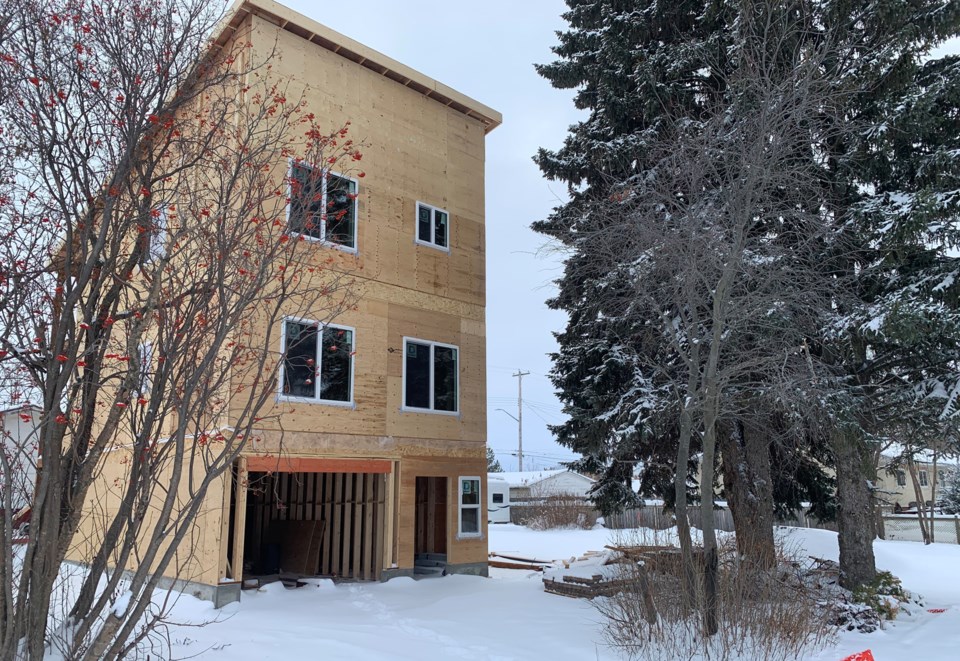The number of development and building permits issued within the Town of Westlock for the first 10 months of 2020 are up versus 2019, although the projected value of the work is down.
At their Nov. 9 meeting, councillors got a look at the building and development permit numbers as part of the monthly development services department report.
To the end of October there’s been 65 development permits issued and 42 building permits handed out, while to end of the same month in 2019 there were 49 development permits and 28 building permits.
The 2020 projected costs for the development permits to the end of October is $1.512M for residential, $414,000 for commercial, $110,000 for industrial and $80,000 for parks and recreation. Up until the end of the same month in 2019, commercial led the way at $2.4M, followed by residential at $451,000.
As for 2020 building permits, residential sits at $809,344, followed by commercial at $600,500 and industrial at $10,000. For 2019 building permits, commercial led through 10 months at $2,295,380, followed by residential at $412,400, institutional at $20,400 and ‘other’ at $20,000.
CAO Simone Wiley pointed to a handful of commercial projects in 2019 for the $2M gap between the two years — DQ, The Brick and Westlock Motors’ new body shop on Highway 18 are a handful of last year’s big commercial construction projects.
“We had big value projects (in 2019), but less permits,” she noted.
And while the COVID-19 pandemic has been tough on many businesses in 2020, there’s been a three-fold increase in residential development permits between 2020 and 2019 and roughly double the value of residential building permits over that same span.
Delving into the 2020 development permit categories, there were 13 accessory structure permits for things like decks and sheds and four permits each for renovations and additions, basically double 2019 when there were 10 accessory structure permits and none issued for renovations and additions.
For 2020 building permits, there are 11 accessory structures, six renovations and four additions, while in 2019 there were 10 accessory structures, two renovations and no additions — again, nearly a two-fold increase.
“It’s an interesting stat. When you talk to businesses like hardware stores, they were extremely busy. There was a lot of people who were at home having more time perhaps to do home renovations, or build the deck that they hadn’t got to before,” said Wiley.
“When you look at accessory structures there were 13 permits, so that could be a shed or a deck. And with renovations and additions that’s another eight so that does point to people doing improvements to their properties.”
According to the town’s website, most types of construction projects with the municipality require both a development permit and a building permit.
“But you don’t always need a building permit when you need a development permit. Temporary portable signs are an easy example — when you put a temporary portable sign you don’t need a building permit,” Wiley explained.
“There’s always going to be fewer building permits due to the fact you need a development permit more times then you need the associated building permit with it.”
A building permit is needed for construction, or major renovations of a building, alteration, installation, repair, relocation, demolition and removal of a building, a change in the building’s intended use, or if the project affects health and safety. Building permits are not required for painting, decorating, re-flooring or re-siding provided there are no matters affecting health and safety and there is no structural change.
Meanwhile, a development permit is needed for most new construction, renovations, new businesses or any time there is a change in the way land is used or the intensity of use. Development permits are also issued by the town to confirm that the proposed construction project meets municipal zoning requirements for the specific location.
Building permits are required under the Alberta Safety Codes Act to make sure the construction and use of the building or equipment will be safe. If a development permit is also required, building permits cannot be issued unless a development permit has been issued first.
And although someone may get a development permit in 2020, they won’t need a building permit until work actually starts, said Wiley.
“You don’t actually need to pull a building permit until you’re ready to construct, which could potentially happen in the next year. It definitely happens,” she said.



